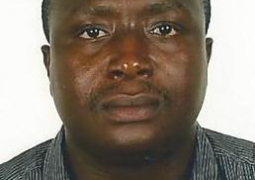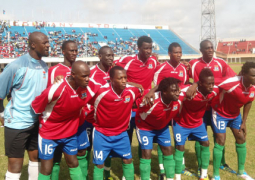Tata Samura, 32, who is three-month old in Italy, said he could not even see the faces of those people who saved them in the Mediterranean.
“They were all covered from head to toe,” he said.“Communication was hard between us and them; we didn’t even have direct physical contact with them.They were scared of us as if we are harmful.”
According to Tata, saving them was fundamental but the manner in which it was done was “questionable and undignified”.
“After we were saved from our small boat; instead of giving us by hand, they threw packets of biscuits and bottles of water at us from a distance,” the Gambian migrant said.“They were completely avoiding us.”
After migrants are saved, they are usually taken to emergency camps before they are finally transferred to refugee camps where it could take at least a year for identification and documentation.
In Italy or Europe in general, Gambian migrants find themselves in insecure situation as most of them are denied asylum because The Gambia is internationally considered a “safe place”.Most of the Gambian asylum seekers consider this perception incorrect.
Migrants like one Mr Mendy (who doesn’t want his first name mentioned) lamented that they are treated differently from other nationals because they have to go through “extremely tough processes” to be documented, if they are to be at all.
Besides the paper conundrum, the young man said:“At the camp, we do not eat and live as we want. We eat pasta almost every day; we have no choice.Also, sometimes we are not given our pocket monies and that makes life more difficult for us.”
Bakary Sanyang, 24, who is now documented in Italy, said he continues to face a lot of racism in almost everything he does or asks for.
“I cannot still get a formal job.The casual work I do, I work more than what I am supposed to do,” Bakary said.“I am the only African there, at my workplace, and I am treated differently from all others.I have no formal salary, no formal rules or regulations.All I have to do is what I am dictated to do by my boss.”
Our correspondent in Italy said the Gambian migrants might be “very sensitive” to racism but most of their concerns are evident.



